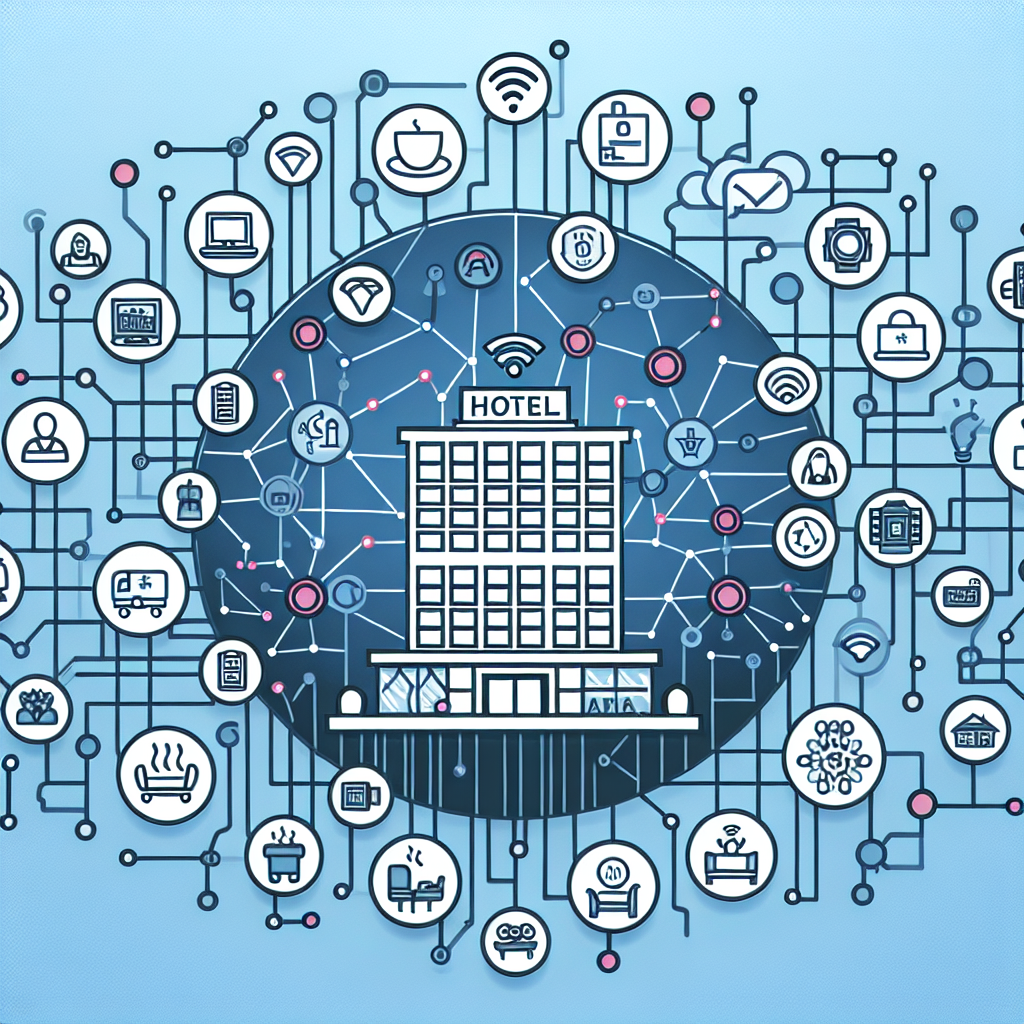AI and IoT: Enhancing Connectivity and Seamless Guest Experiences in Hospitality
In recent years, the hospitality industry has seen a significant transformation with the integration of artificial intelligence (AI) and the Internet of Things (IoT). These technologies have revolutionized the way hotels and resorts operate, enhancing connectivity and providing seamless guest experiences like never before.
AI and IoT have enabled hotels to streamline operations, personalize guest services, and improve overall efficiency. From smart room controls to chatbots for customer service, these technologies have become essential tools in the hospitality industry.
AI in Hospitality
Artificial intelligence is being used in various ways in the hospitality industry to enhance guest experiences and improve operational efficiency. One of the key areas where AI is making a significant impact is in customer service. Chatbots and virtual assistants are being used by hotels to provide instant responses to guest inquiries, make reservations, and provide recommendations on local attractions and dining options.
AI is also being used to personalize guest experiences. By analyzing guest data and preferences, hotels can offer personalized recommendations for activities, dining options, and room preferences. This not only enhances the guest experience but also helps hotels increase customer loyalty and repeat business.
Additionally, AI is being used to optimize hotel operations. Predictive analytics can help hotels forecast demand, optimize pricing, and streamline inventory management. AI-powered systems can also help hotels automate repetitive tasks, freeing up staff to focus on more complex and high-touch interactions with guests.
IoT in Hospitality
The Internet of Things is another technology that is transforming the hospitality industry. IoT devices such as smart thermostats, lighting controls, and keyless entry systems are being used in hotels to enhance guest comfort and convenience. These devices can be controlled remotely, allowing guests to personalize their room environment to their preferences.
IoT devices are also being used to improve operational efficiency in hotels. For example, sensors can be used to monitor energy usage, track inventory levels, and detect maintenance issues in real-time. This allows hotels to proactively address issues before they impact guest experiences and reduce operational costs.
Furthermore, IoT devices are being used to enhance security in hotels. Smart locks and access control systems can provide secure access to guest rooms, while surveillance cameras and sensors can monitor public areas to ensure guest safety.
Enhancing Connectivity and Seamless Guest Experiences
By integrating AI and IoT technologies, hotels can enhance connectivity and provide seamless guest experiences. For example, AI-powered chatbots can be integrated with IoT devices to provide guests with personalized recommendations and control over their room environment. Guests can use voice commands to adjust room temperature, request room service, or ask for local recommendations, creating a more convenient and personalized experience.
IoT devices can also be used to gather data on guest preferences and behaviors, which can be analyzed by AI systems to provide personalized recommendations and offers. For example, a hotel could use IoT sensors to track guest movement within the property and use this data to offer personalized promotions for on-site amenities and services.
Furthermore, AI and IoT technologies can be used to streamline check-in and check-out processes, reducing wait times and improving guest satisfaction. Mobile check-in and keyless entry systems can allow guests to bypass the front desk and go directly to their room upon arrival, while AI-powered chatbots can assist with any questions or requests during their stay.
FAQs
Q: How are AI and IoT being used in the hospitality industry?
A: AI and IoT are being used in various ways in the hospitality industry to enhance guest experiences and improve operational efficiency. AI is being used for customer service, personalization, and operational optimization, while IoT devices are being used for guest comfort, operational efficiency, and security.
Q: What are some examples of AI and IoT applications in hotels?
A: Some examples of AI and IoT applications in hotels include chatbots for customer service, smart room controls for guest comfort, predictive analytics for demand forecasting, and keyless entry systems for security.
Q: How do AI and IoT technologies enhance connectivity and provide seamless guest experiences?
A: By integrating AI and IoT technologies, hotels can provide personalized recommendations, streamline operations, and improve guest satisfaction. AI-powered chatbots can be used to provide instant responses to guest inquiries, while IoT devices can be used to personalize room environments and gather data on guest preferences.
Q: What are the benefits of integrating AI and IoT in the hospitality industry?
A: The integration of AI and IoT in the hospitality industry can lead to improved guest experiences, increased operational efficiency, and enhanced connectivity. These technologies can help hotels personalize guest services, optimize operations, and provide a seamless and convenient experience for guests.
In conclusion, AI and IoT technologies are revolutionizing the hospitality industry by enhancing connectivity and providing seamless guest experiences. By leveraging these technologies, hotels can personalize guest services, streamline operations, and improve overall efficiency, ultimately leading to increased guest satisfaction and loyalty.

